Eye health is paramount to maintaining quality of life and independence as we age. Essential vitamins and minerals support vision and prevent common eye diseases. This article delves into the critical nutrients required for optimal eye health, including Vitamin A, Vitamin C, Vitamin E, Zinc, Omega-3 fatty acids, Lutein and Zeaxanthin, B Vitamins, and Selenium. Each vitamin and mineral contributes uniquely to eye health, from protecting against oxidative stress to improving night vision. Understanding the importance of these nutrients and incorporating them into our diet can significantly impact our vision and overall eye health.
Vitamin A: The Vision Vitamin
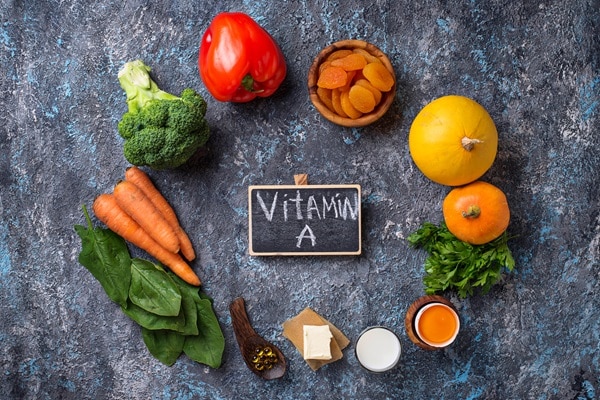
Vitamin A is fundamental for maintaining vision, especially in low-light conditions. It helps produce the pigments in the retina, which is critical for night vision. Deficiency in Vitamin A can lead to night blindness, a condition that significantly impairs the ability to see in dim light. Besides its role in vision, Vitamin A supports the immune system and is essential for reproductive health. Ensuring an adequate intake of Vitamin A through dietary sources such as carrots, sweet potatoes, and leafy green vegetables can prevent deficiencies and maintain healthy vision.
Natural sources of Vitamin A, like liver and eggs, offer retinol, the active form of the vitamin. In contrast, plant-based sources provide beta-carotene, a precursor that the body converts into Vitamin A. The recommended daily intake varies by age, sex, and life stage, but incorporating various Vitamin A-rich foods can help meet these needs. For individuals unable to meet their requirements through diet alone, supplements may be an option, but it’s essential to consult with a healthcare provider to avoid toxicity.
Vitamin C: Antioxidant Powerhouse

Vitamin C plays a pivotal role in eye health, particularly in supporting the health of blood vessels in the eyes. It is a potent antioxidant that can help reduce the risk of developing cataracts and, when combined with other essential nutrients, can slow the progression of age-related macular degeneration (AMD). Vitamin C also aids in regenerating other antioxidants within the body, including Vitamin E, enhancing its protective effects on the eyes.
Citrus fruits, bell peppers, strawberries, and broccoli are excellent sources of Vitamin C. Regular consumption of these foods can help achieve the recommended daily intake, supporting eye health, the immune system, and skin integrity. Considering the body does not store Vitamin C, a consistent daily intake is necessary to maintain adequate levels and support the various physiological functions where Vitamin C is involved.
Vitamin E: The Protector
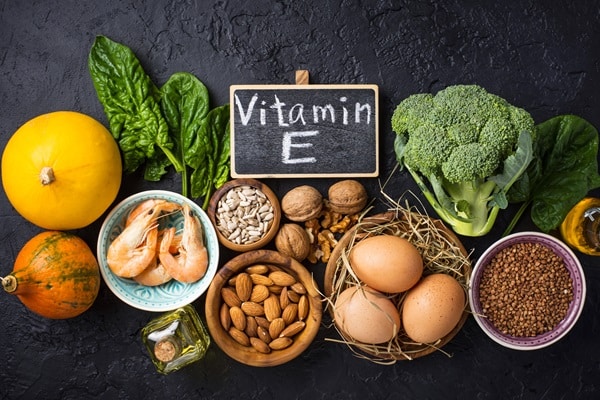
Vitamin E is a fat-soluble antioxidant crucial in protecting eye cells from damage caused by free radicals. This protective effect is particularly important for preventing the progression of age-related macular degeneration (AMD) and cataracts, two of the leading causes of vision impairment and blindness in older adults. Vitamin E’s antioxidant properties help maintain healthy eye tissue and support overall eye health.
Nuts, seeds, and green leafy vegetables are good sources of vitamin E. Almonds, for instance, are high in Vitamin E and provide healthy fats that can enhance the absorption of this fat-soluble vitamin. Regular intake of these foods can contribute to a well-rounded diet that supports eye health and prevents the oxidative stress associated with eye diseases.
Zinc: Supporting Sharp Vision
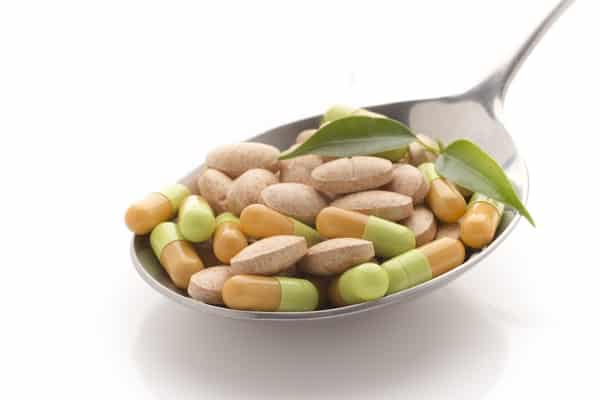
Zinc is a trace mineral with a significant impact on eye health. It is vital in transporting Vitamin A from the liver to the retina to produce melanin, a pigment that protects the eyes. Zinc deficiency can impair vision, particularly in dim lighting, as melanin production is compromised. Furthermore, zinc supports the immune system and can help protect against age-related ocular diseases.
Beef, oysters, and pumpkin seeds are excellent sources of zinc. Including these foods in your diet can help maintain the zinc levels necessary for healthy eye function. Zinc supplements are also available, but it’s important to consult with a healthcare professional before starting any supplementation, as excessive zinc intake can interfere with the absorption of other minerals.
Omega-3 Fatty Acids: Vision and Beyond
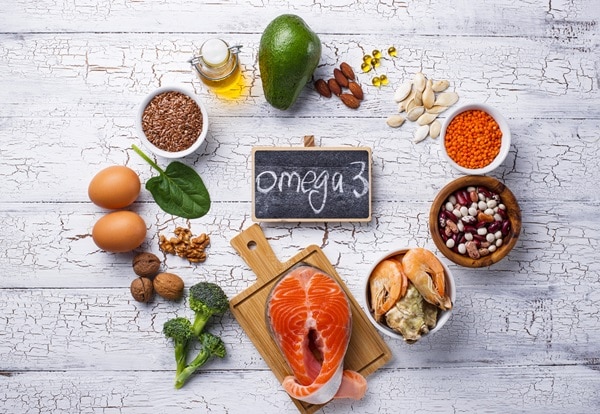
Omega-3 fatty acids are crucial for maintaining eye health, particularly the DHA component, a primary structural component of the retina. Adequate intake of omega-3s can help prevent dry eye syndrome and is linked to a reduced risk of age-related macular degeneration. These fatty acids also support brain health, highlighting their importance beyond just eye health.
Fish, especially salmon, mackerel, and sardines, are rich sources of omega-3 fatty acids. Flaxseeds and walnuts are good plant-based sources for vegetarians or those who do not consume fish. Incorporating these foods into the diet can help ensure adequate intake of omega-3s, supporting eye health and overall well-being.
Lutein and Zeaxanthin: The Eye Filters

Lutein and Zeaxanthin are carotenoids found in high concentrations in the macula, a part of the eye critical for vision clarity. These nutrients act as natural filters of harmful blue light, protecting the eyes from potential damage caused by exposure to sunlight and digital screens. Additionally, they are associated with a reduced risk of developing age-related macular degeneration (AMD) and cataracts by enhancing the macular pigment’s density and improving visual performance and health.
Leafy green vegetables, such as kale and spinach, are excellent sources of Lutein and Zeaxanthin. Eggs are another good source, providing these carotenoids in a form easily absorbed by the body. Regularly consuming these foods can help maintain adequate levels of these crucial nutrients, contributing to the preservation of eye health and prevention of age-related vision problems.
B Vitamins: Comprehensive Eye Care

The B Vitamins, particularly B6, B9 (folate), and B12, play a role in reducing the body’s levels of homocysteine, a protein associated with inflammation and an increased risk of vascular issues affecting the retina. High homocysteine levels have been linked to a greater risk of developing age-related macular degeneration and other vascular-related eye conditions. Therefore, maintaining adequate levels of these B Vitamins is crucial for eye health and can help prevent these conditions.
Whole grains, eggs, and dairy products are rich in B vitamins. Leafy green vegetables are also a good source of folate, while meat and fish are excellent sources of B12. A diet incorporating various foods can help ensure sufficient B Vitamins, support eye health, and reduce the risk of age-related eye diseases.
Selenium: The Antioxidant Enhancer
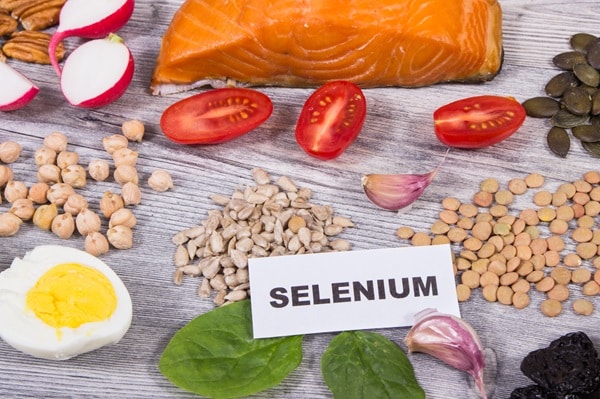
Selenium is a trace mineral that works with Vitamin E and Vitamin C to enhance the body’s antioxidant defenses, particularly in the eyes. Selenium protects the eyes from oxidative stress and damage and prevents cataracts and age-related macular degeneration (AMD). Its ability to support the absorption and effectiveness of other antioxidants makes it a critical component of eye health.
Brazil nuts are one of the richest dietary sources of Selenium. Other sources include seafood, eggs, and sunflower seeds. Including these foods in your diet can help maintain Selenium levels, contributing to the overall antioxidant protection of the eyes and supporting healthy vision.
The Bottom Line
Maintaining eye health is essential for overall quality of life, and a balanced diet rich in specific vitamins and minerals can significantly contribute to this goal. From Vitamin A, essential for night vision, to Omega-3 fatty acids, which protect against dry eye syndrome, each nutrient offers unique benefits supporting different eye health aspects. Incorporating a variety of nutrient-rich foods into the diet can help ensure adequate intake of these essential vitamins and minerals, reducing the risk of age-related vision problems and supporting eye health over the long term. By understanding the role of these nutrients and making dietary choices that reflect their importance, individuals can take proactive steps toward maintaining their vision and eye health well into the future.


